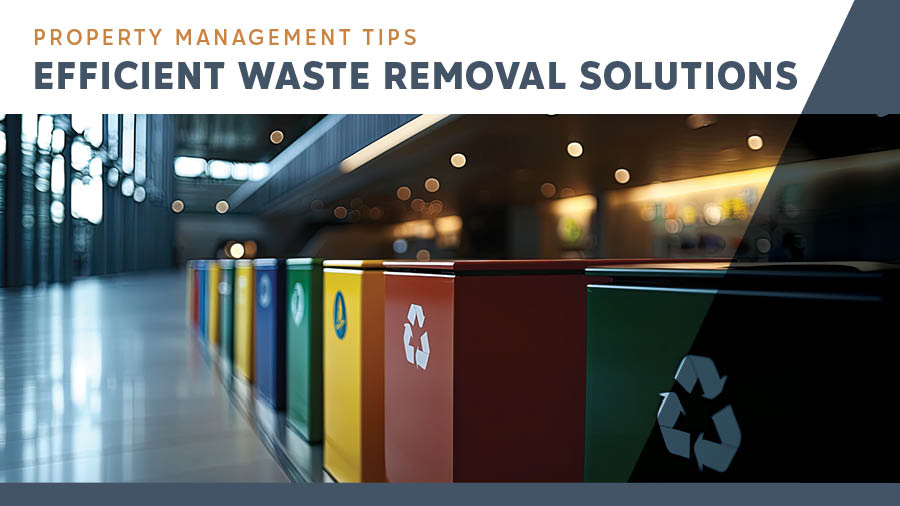
How to Solve Waste Management Issues in Multi-Tenant Properties
FROM ILLEGAL DUMPING TO HAZARDOUS WASTE: SOLVING COMMON WASTE REMOVAL PROBLEMS
Waste removal poses unique challenges for property owners, especially in multi-tenant industrial spaces where shared waste facilities and varying levels of waste production can create logistical and budgetary concerns. At GM Properties, we understand that effective waste management is key to maintaining clean, compliant, and cost-efficient properties.
Here’s how our team manages waste removal for our clients, addressing both regular and hazardous waste with proactive strategies and expertise:
MANAGING REGULAR WASTE
For most properties, managing regular waste — including trash, recycling, and green waste — is straightforward. Tenants typically share dumpsters, and waste collection is scheduled 1 to 3 times per week, depending on tenant volume.
However, persistent challenges such as illegal dumping and waste overflow can complicate the process. Non-tenants may dispose of personal items — including large objects like mattresses — in property dumpsters. In extreme cases, we’ve encountered situations where tenants have permitted outsiders to abandon items like boats on-site, leading to substantial cleanup costs.
Within multi-tenant properties, variations in waste production can also create friction. Tenants generating excess waste may cause dumpsters to overflow, leading waste collection companies to refuse service. Property managers often step in to mediate when one tenant’s waste habits disrupt service for others.
To address these issues, we recommend:
- Clear lease agreements: Include specific clauses about waste disposal responsibilities.
- Security measures: Install motorized gates, enhance lighting, and use security cameras (real or fake) to deter unauthorized dumping.
- Trash enclosures: Adding roofed enclosures can prevent unauthorized disposal.
- Consistent monitoring: Conduct regular property inspections to address issues proactively.
HANDLING HAZARDOUS WASTE
Managing hazardous waste — such as paint, oil, and chemicals — requires specialized expertise to ensure compliance with environmental regulations. Unlike regular waste, hazardous materials cannot be disposed of in standard dumpsters, and require disposal by licensed hazardous waste removal companies.
Key steps in managing hazardous waste include:
- Securing an EPA number: An EPA identification number specific to the property is required before a waste removal company can legally proceed with the disposal of hazardous materials. If a permanent EPA number isn’t available, a temporary one can be obtained through the appropriate regulatory agency.
- Maintaining compliance records: After removal, the disposal company will issue a manifest detailing the collected materials, which must be retained as part of compliance documentation.
- Ongoing arrangements: For tenants producing hazardous waste regularly, such as machine shops, scheduled collections with environmental companies are standard. Property managers typically step in to resolve issues as they arise.
At GM Properties, we specialize in managing multi-tenant properties. Our teams partner with property owners to develop tailored waste management plans that address the unique needs of their buildings. Whether it’s preventing overflow, addressing illegal dumping, or handling hazardous materials with care, we have the expertise to tackle it all. Our proactive approach ensures clean, compliant, and cost-effective operations, allowing owners to focus on their core priorities with peace of mind.
_______________________
If you, or a commercial property owner you may know, needs waste removal assistance as a result of the wildfires, or for more information about our waste management services, contact our Property Management team today.
